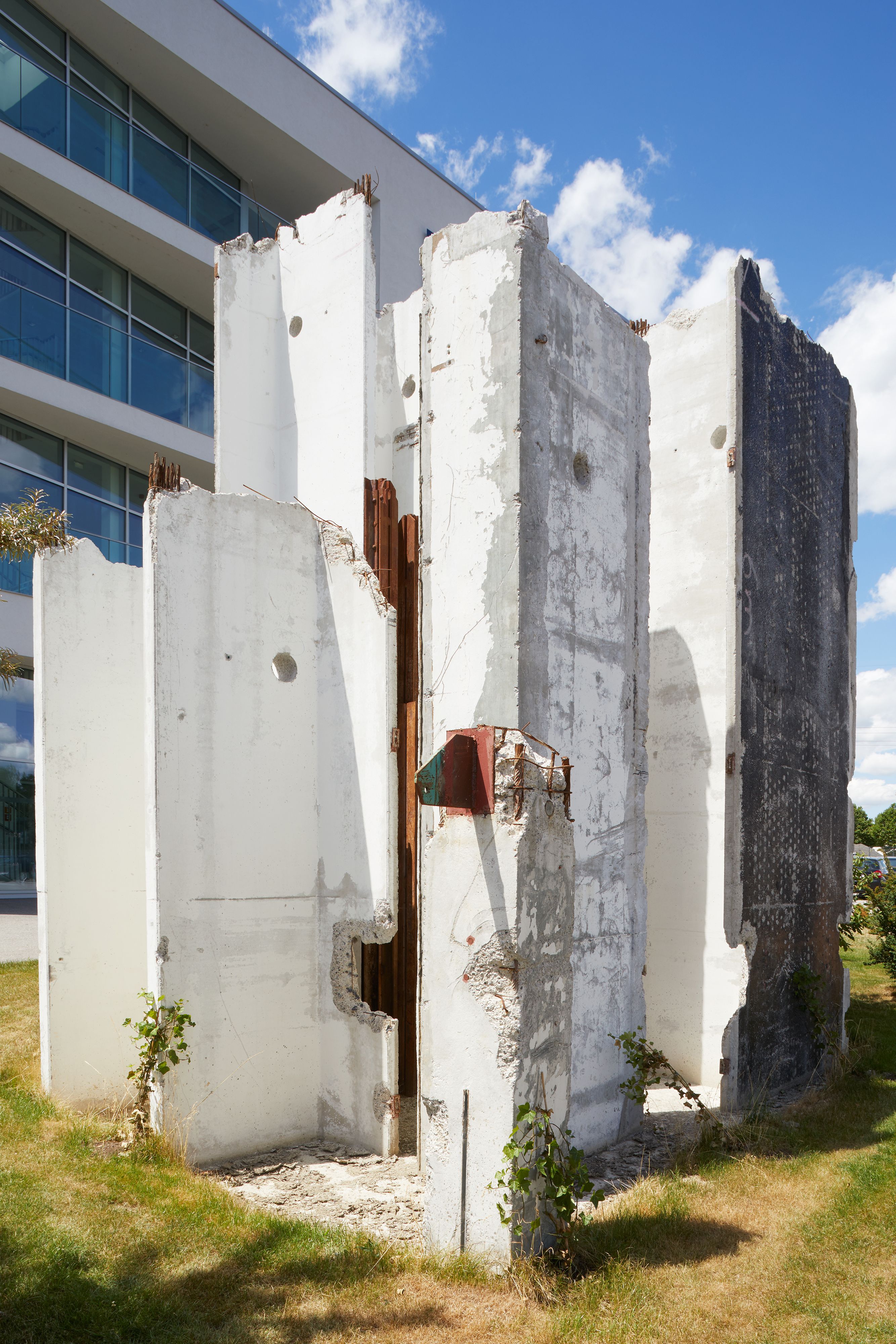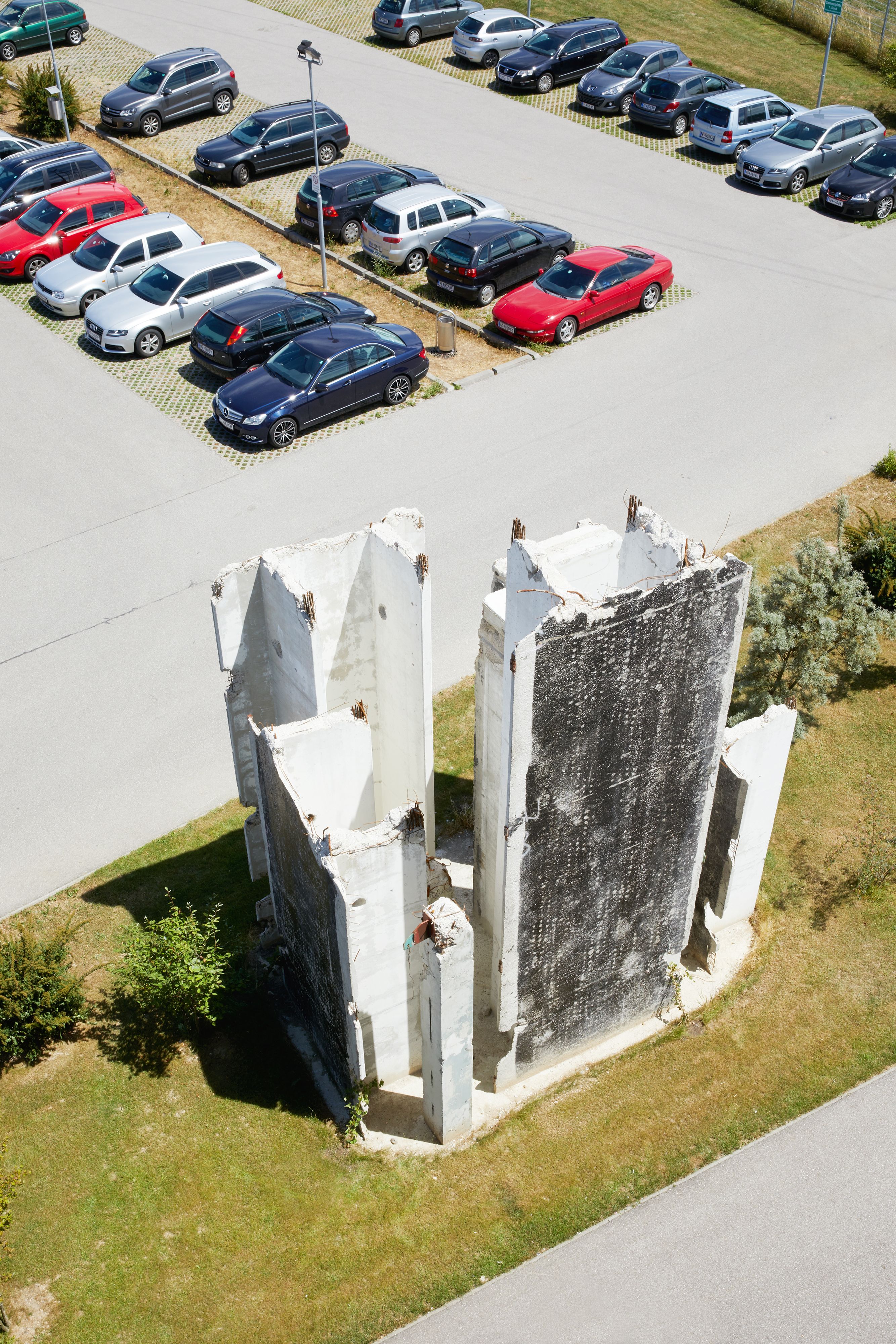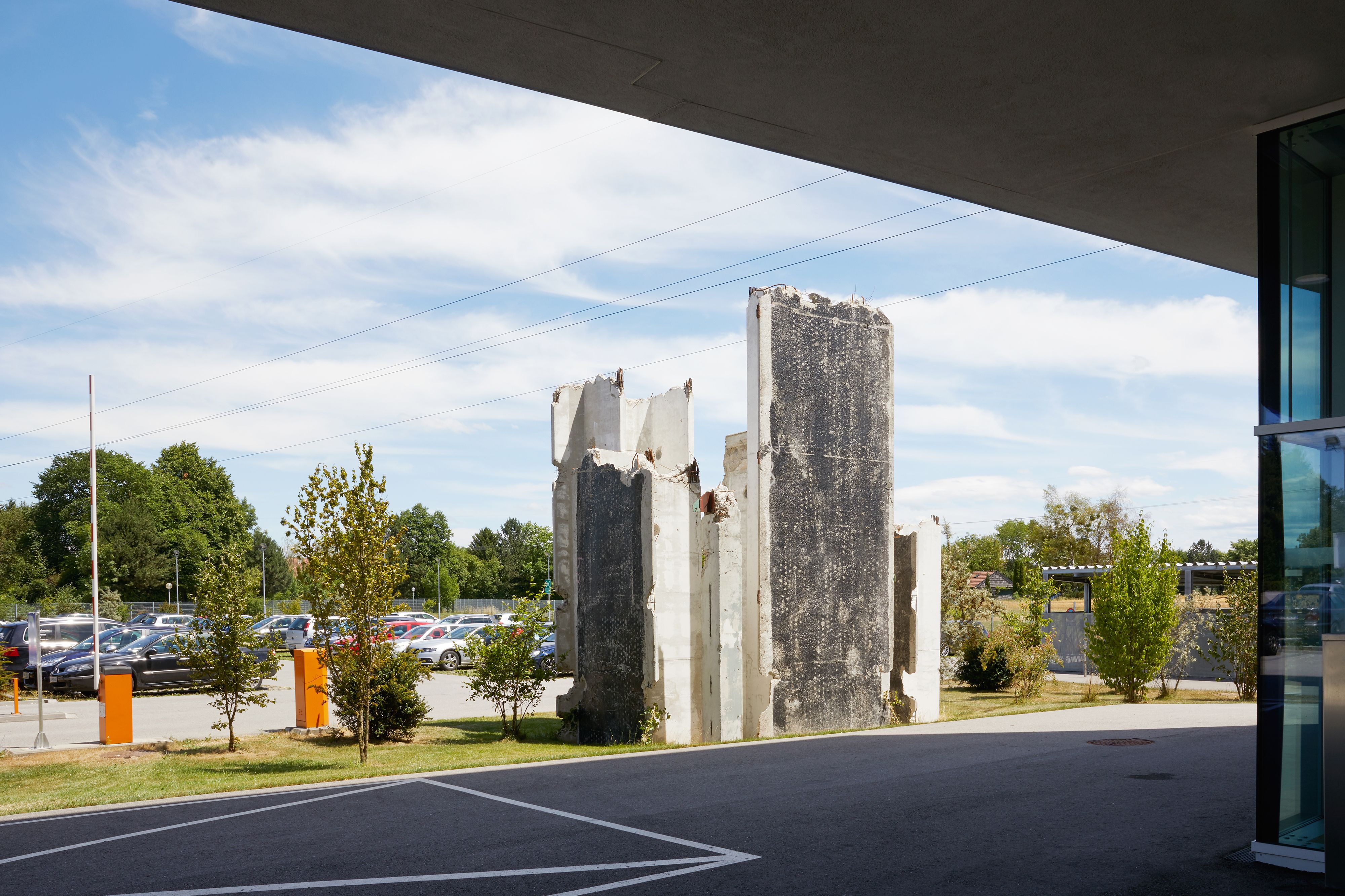Arturo Hernández Alcázar
:
De-Demolition (Naked Building)
Back
Information
Massive, reinforced concrete walls as high as seven meters can be seen standing next to the Landesberufsschule (State Vocational School) in Amstetten. While they form an accessible enclosure, they do not seem inviting in the usual sense. No perfectly smooth walls, no closed corners, no protective roof is visible; only traces of decay and destruction everywhere: peeling plaster, knocked-off edges, and the inner mesh of reinforcing steel exposed. The sculpture, which is imposing despite its obvious traces of destruction, is made of elements taken from a recently demolished trade fair hall in Wieselburg. The hall was erected in 1971 in the style of massive concrete elements and columns preferred at the time, representing (if nothing else) a corresponding economic approach. Its massive appearance only superficially hides the key driving force of neo-liberalism: It can only function as long as new things are constantly being bought, built, and produced and all “old” things (40 years in the case of the fair trade hall) make room this cycle.
These are the core elements of the working method and thematic approach of the Mexican artist Arturo Hernández Alcázar. He believes that everything built by humans contains its own demise within itself. This is also the idea behind the paradox of building a ruin. Unlike a shiny new building, the artist’s installation presents a future that is already part and parcel of the material. The idea of an “artistic ruin” is not new. Artificial ruins were especially popular in landscape gardens and illustrations of human mortality in Romanticism. However, Alcázar uses a different kind of approach that is more drastic, direct, and provocative to emphatically demonstrate that everything that humans produce, create, and build not only simply decays and disappears over time; it is most often deliberately destroyed by other people. This is not always done to replace the object with something more beautiful or better; it is often done for purely economic reasons – to maximize profit, or because of war.
(Kartina Petter)





